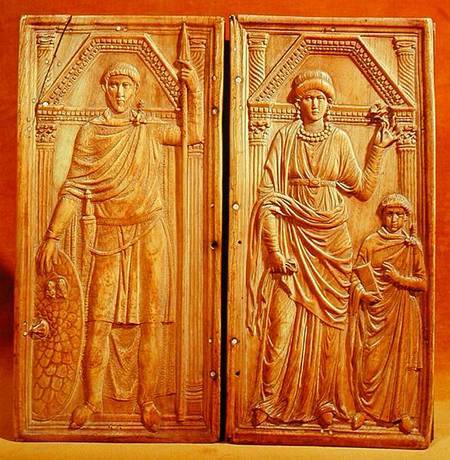This past week I was in Kalamazoo Michigan for the International Congress for Medieval Studies. It was the 50th such Congress at Western Michigan University, and a certain number of sessions were devoted to looking back over the past half-century or so.
Sure enough, some of those sessions (which I should point out were very good and interesting) included a lot of griping and grouching about the misuse and ambiguity of the word medieval. You would think that a bunch of scholars who by their very nature of their discipline are experts in the evolution of the meaning of words would by now have gotten over the fact that though it doesn’t make a lot of sense to call “the Middle Ages” by that term, and that coming up with a really good, chronological definition of those ages is impossible, we are stuck with the words medieval and Middle Ages anyway. But no, there is a lingering feeling that it should be possible to nail down these terms – Middle Ages, medieval – once and for all. Or ditch them. If all the experts agreed, everybody else would have to fall into line – right?
You know that’s not going to happen.
Scholars of the Middle Ages, like experts in any other field, feel they should be in control of the terminology that defines their work and gives them legitimacy. But the truth is that any important subject is contested between a whole bunch of different individuals and groups who have an interest in that field. A single word – medieval – is shattered into a variety of definitions, many of which are out of date – at least in the eyes of people working on the cutting edge of, say, “medieval studies.” Old assumptions and terms and generalizations which current practitioners have rejected hang on in popular and nonspecialist discussions.
This can be intensely irritating for people who know that certain phrases and analyses lost their cogency back in 1927 and want to talk about what their friends are doing in the field now. Nevertheless people whose business is words should really accept the fact that words like “medieval” have a number of popular meanings, and when one of them shows up in current discussion (when, for instance, a Game of Thrones shows up and is widely labelled as medieval, even though the world of Game of Thrones is not our earth at all), the fact can be dealt with a good-humored way. It certainly would reflect credit on any field where a good-humored approach was the norm.
David Parry made the most sensible remark of the entire week when he pointed out that an imprecise word like medieval has a lot of cultural value for people who make their living interpreting that era. Indeed there is a financial payoff being associated with it. As he said, “the word makes students registering for courses press the button on the screen that says ‘enroll.’ The phrase ‘early modern’ doesn’t have that effect. ”



